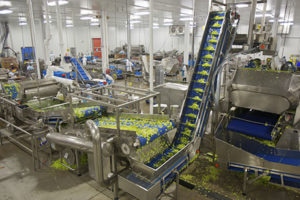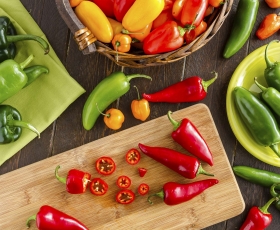In today's conscientious customer landscape, the need for ethically sourced and also sustainable products has actually risen. Private label food manufacturers have actually become innovators in this domain name, typically teaming up with agreement food makers to spearhead sustainability as well as liable sourcing initiatives. With a resolute dedication to ecological ethics, exclusive label brand names have made it their objective to supply lasting, high-quality choices to customers.
Private Label Food Manufacturers
Over the last few years, private label food manufacturers, likewise referred to as own brand names or store brands, have actually witnessed a remarkable surge in appeal. These makers produce goods sold under the logo design of a retailer, grocer, or exclusive entity. What collections private-label items apart is their capacity to use competitive prices without endangering on high quality.
Agreement Food Manufacturers
Several private-label food manufacturers join pressures with contract manufacturers to create their product. Agreement food makers are experts in creating food for exclusive tags. This critical collaboration permits private label business to tap into the experience, resources, as well as specialized food production facilities of their partners.
Sustainability at the Core
Private label food manufacturers use numerous methods to improve sustainability within their supply networks:
Moral Sourcing:
Exclusive label companies are increasingly committed to sourcing ingredients according to ethical and also reasonable trade standards. This involves ensuring that producers as well as employees of raw materials, such as coffee beans, flavors, or cocoa, receive fair settlement for their efforts.
Neighborhood Sourcing:
Focusing on regional sourcing of active ingredients is one more hallmark of private-label food makers. This not only lowers the carbon impact related to transport yet also sustains regional farmers and areas.
Organic Contents:
With the health food market rising, exclusive labels are reacting by including organic ingredients into their product lines. Organic farming methods prioritize dirt health and wellness while avoiding artificial chemicals as well as fertilizers.

Private Label Food Manufacturers are thorough in ensuring that the fish and shellfish they utilize is sustainably harvested, adhering to standards set by companies like the Marine Stewardship Council, which promotes accountable fishing.
Decreased Food Waste:
Personal private label food products label business are proactively servicing reducing food waste by executing reliable manufacturing processes and developing products with longer life span. Some brands are also partnering with food rescue companies to give away surplus food to those in need.
Eco-Friendly Product Packaging and Initiatives
Sustainability initiatives by private-label food manufacturers extend beyond sourcing ingredients to include product packaging and eco-friendly campaigns:
Lasting Packaging:
Private label brands have actually embraced environmentally friendly packaging alternatives, consisting of recyclable, naturally degradable, or compostable products. Revamping product packaging to minimize excess material and also reduce ecological impact is a leading concern.
Waste Reduction:
To minimize wastefulness, private-label food manufacturers maximize item dimensions, reduce excess packaging, and also discover innovative packaging options. Some brand names also motivate consumers to participate in recycling programs.
Power Performance:
Several private label makers are investing in even more energy-efficient production plants, lowering water use, and also embracing renewable resource resources to better minimize their environmental footprint.
Carbon Neutral Initiatives:
Some personal brand food manufacturers are taking ambitious steps to achieve carbon nonpartisanship by offsetting their greenhouse gas discharges with reforestation projects and also renewable resource credit scores.
Challenges and the Road Ahead
Regardless of the significant strides made in sustainability and also responsible sourcing, private-label food producers deal with challenges. Balancing sustainability with cost-effectiveness can be a fragile act, occasionally calling for concessions on lasting ingredients or the exploration of environment-friendly alternatives.
Nevertheless, the future of private-label food manufacturing holds fantastic pledge. As customer understanding as well as demand for lasting items remain to increase, private-label brands and their contract food manufacturing companions are likely to intensify their efforts. Partnership with distributors as well as investment in lasting technological breakthroughs as well as transparency will be crucial fit a lasting future for the sector.
Often Asked Concerns
Q1: What are private label food manufacturers?
Private label food manufacturers generate items marketed under the logo of a retailer, grocer, or personal entity. They supply competitively valued items without endangering on top quality.
Q2: Just how do private label food manufacturers advertise sustainability?
Private label food manufacturers promote sustainability with honest sourcing, neighborhood ingredient procurement, making use of natural active ingredients, sustainable seafood methods, and also initiatives to decrease food waste.
Q3: What eco-friendly packaging alternatives do personal label brand names use?
Exclusive label brands take on environmentally friendly product packaging alternatives such as recyclable, biodegradable, or compostable materials. They also redesign product packaging to decrease excess product and also decrease environmental impact.
Q4: What challenges do private label food manufacturers deal with in sustainability efforts?
Stabilizing sustainability with cost-effectiveness is a significant difficulty for private label food manufacturers. This might require compromises on lasting ingredients or the exploration of environment-friendly options.

Final thought
Private label food manufacturers are at the center of the sustainability as well as responsible sourcing motion within the food market. Their commitment to honest sourcing, regional procurement, organic ingredients, and lasting practices, in addition to their devotion to environment-friendly product packaging as well as waste reduction efforts, demonstrate their resolution to meet the needs these days's eco-conscious customers.
Despite the difficulties they encounter, private label food manufacturers are positioned for an encouraging future. With customers significantly focusing on sustainability, the industry is likely to witness also better collaboration with suppliers, investment in sustainable innovations, as well as a dedication to transparency. As we progress, private label food manufacturers will remain to play a vital function in shaping an extra sustainable as well as moral food landscape for all.